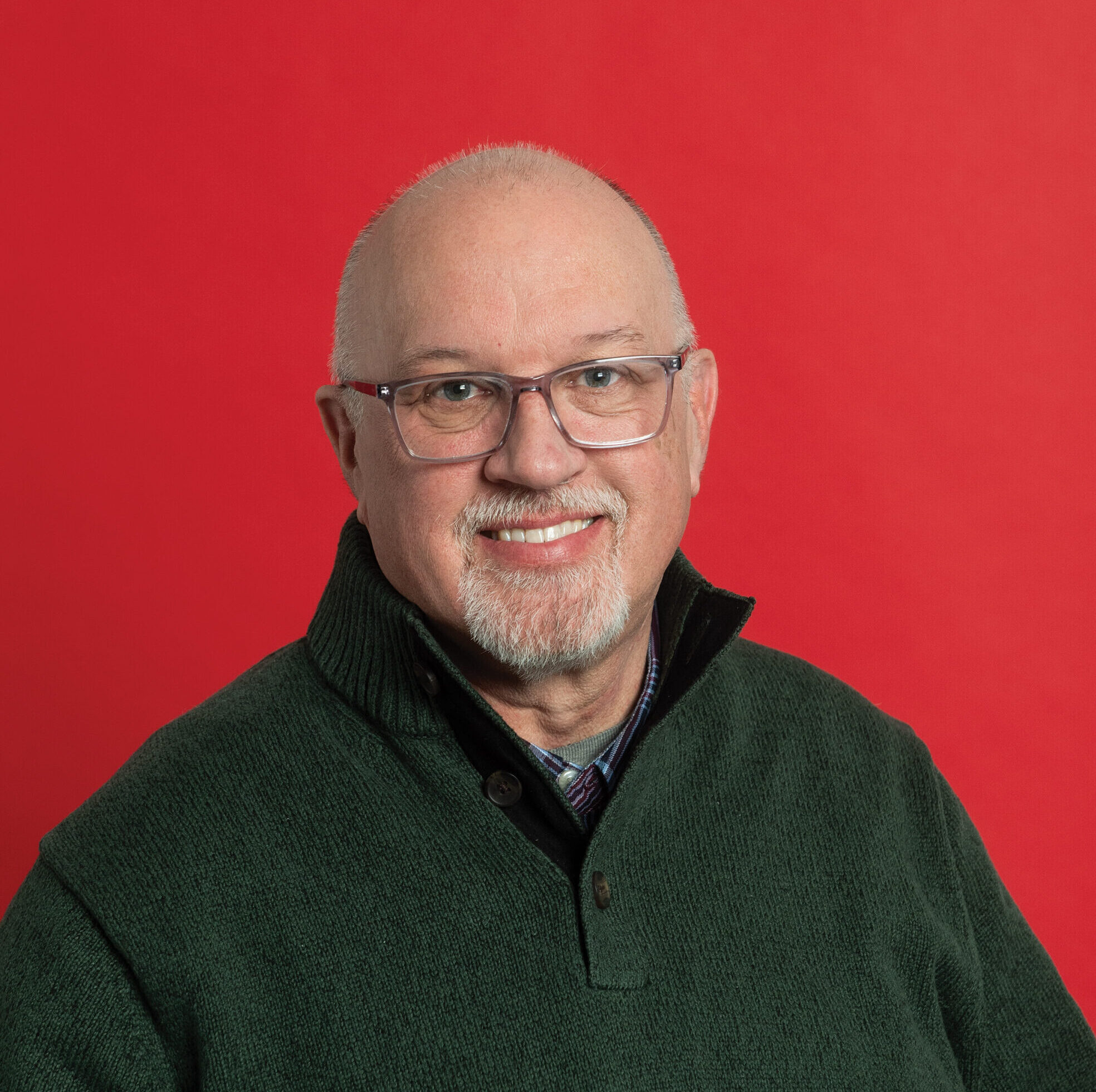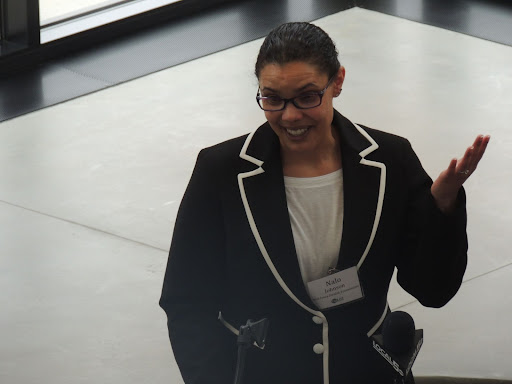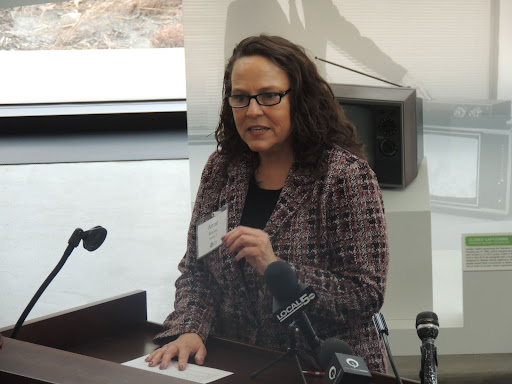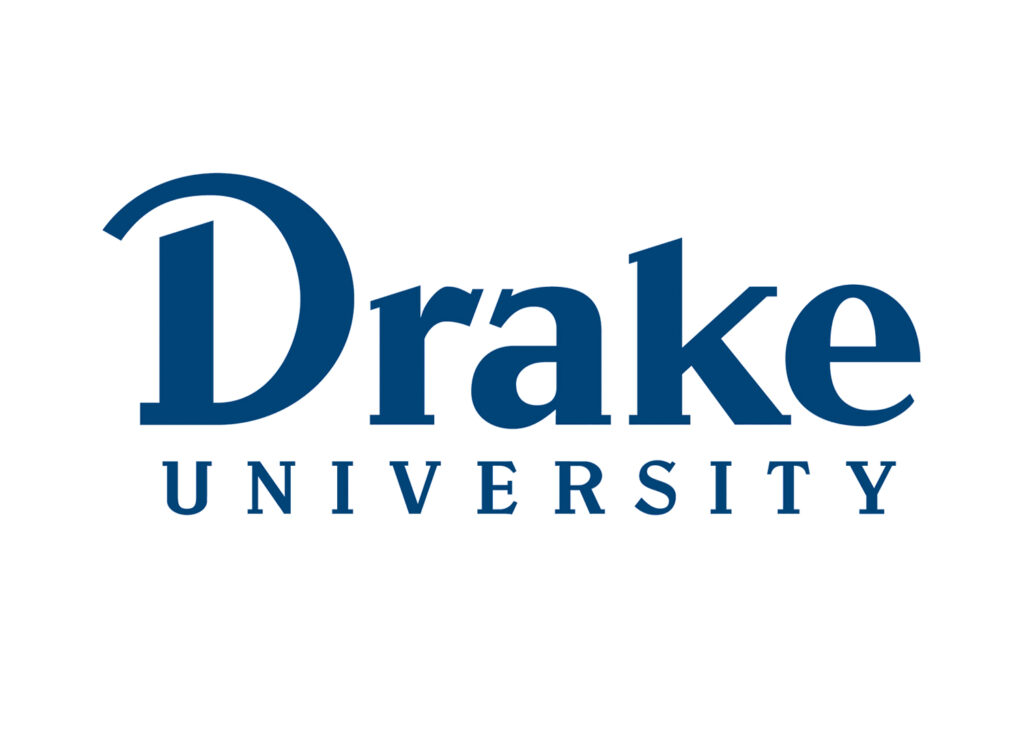Pilot project UpLift launches to provide monthly basic income
Organizers ask community to imagine different approach to poverty reduction

Michael Crumb Feb 16, 2023 | 3:27 pm
3 min read time
831 wordsAll Latest News, Government Policy and Law, Workforce DevelopmentA pilot program to provide low-income residents in Central Iowa an unconditional income of $500 a month was officially launched Wednesday, with organizers saying the project will help people before they are in crisis.
UpLift is a partnership that will study the effects that giving Central Iowans a basic income has on poverty reduction strategies.
Ashley Ezzio, senior project coordinator at the Harkin Institute for Public Policy and Civic Engagement at Drake University, said the community does well at helping those who are already in need, providing programs and services when residents need them most.
“But what if we consider it a different approach?” Ezzio said during the launch ceremony at the Tom and Ruth Harkin Center on Drake’s campus. “What if we could show up before folks are in crisis? That’s what UpLift is about. We’re here to create the opportunity for people to not just survive, but to thrive. UpLift is about creating the opportunity for individuals and families to reach their full potential while being fully present for those around them.”
The Harkin Institute will coordinate the implementation of the project.
Wednesday’s ceremony recognized the partners who came together to provide funding for the project. In all, 11 local governments and organizations invested a total of $2.5 million, with 70% coming from private funds.
Those groups include the Mid-Iowa Health Foundation, Principal Foundation, Wells Fargo Foundation, the cities of Des Moines, Urbandale and Windsor Heights, Polk County, Bank of America, the Director’s Council, Telligen Community Initiative, and the United Way of Central Iowa.
The program will provide $500 a month for 24 months to 110 individuals in Polk, Dallas and Warren counties whose family income is 60% or less of the area median income. To qualify, a household income for a family of four cannot exceed $59,100. For a family of three, the annual income cannot be more than $53,190, and $47,280 for a family of two.
The application period opened today and will continue through Feb. 27.
According to information provided by organizers, providing a basic income gives people more flexibility to meet their essential needs, reduces month-to-month fluctuations in income, increases ability to find full-time work, improves physical and mental health, and improves ability to respond to unexpected emergencies.
Researchers will track how participants use the stipend each month. They will compare various outcomes with those of 140 people who don’t receive the monthly payment. Findings will be shared with the community to explore the effects a sustained unrestricted income has on low-income residents.
The UpLift study will be evaluated by a team from the Center for Guaranteed Income at the University of Pennsylvania in collaboration with Des Moines University’s Department of Public Health.
Representatives from the Center for Guaranteed Income said UpLift is the 32nd guaranteed income pilot they are supporting, and the first that encompasses urban, suburban and rural areas all in one.

Dr. Nalo Johnson, president and CEO of Mid-Iowa Health Foundation, said UpLift is the result of a yearlong conversation involving public-private partners.
“We believe we need to invest in root cause solutions to reduce the experience of poverty in our community,” she said. “Too often we are asked to invest in temporary solutions, that while they may address a need in the moment of crisis, they do not address the consistent experience of poverty.”
She said the community needs to ask, “What happens if we can imagine more?”
“What happens if we can be innovative in this field of poverty reduction strategies and social benefits models?” Johnson said. “If more effective and efficient poverty reduction strategies are implemented, do the social support needs of our community change? Are our families more economically stable? Do businesses have employees that are more present and engaged? Do schools have healthier students? And a critical question with a healthier and thriving community — do we free up public and philanthropic funds for other community goals?”
Anne Bacon, CEO of Impact Community Action Partnership, said the answer to addressing the poverty question is found in simple math.
Bacon said research said a single adult needs to earn $23 an hour to meet their essential needs. A family with two working adults and two children needs to make $34 an hour.
“These families would barely be getting by and they certainly would not be thriving in Iowa,” she said.
Half of the jobs in Iowa pay less than $19.18 an hour, leaving thousands of Iowa families living in crisis or on the edge of crisis, Bacon said.
She said she’s eager to see the results of UpLift because “it changes the equation.”
“The model provides the extra income that allows families to not just survive, but able to cover their essential needs and thrive by alleviating the daily stress that comes from simply trying to make it work,” she said.
Bacon said UpLift cannot be the only solution the community tries, but it can help inform the community on how it addresses poverty going forward.
“It can ensure we are investing in solutions and making policy decisions that are impacting the root issues and having a broader impact,” she said.

Michael Crumb
Michael Crumb is a senior staff writer at Business Record. He covers real estate and development and transportation.











